Thursday, February 26, 2015
Monday, February 23, 2015
Dead Man Walking
From left, composer Jake Heggie, company artistic director
Nicole Paiement, Sister Helen Prejean and company production director
Brian Staufenbiel.
Conductor: the fabulous Nicole Paiement
Production: Brian Staufenbiel
Sister Helen: Jennifer Rivera
Sister Rose: Talise Trevigne
Father Grenville: John Duykers
George Benton: Philip Skinner
Joseph De Rocher: Michael Mayes
Older Brother: Jonathan Smucker
Younger Brother: Baxter Spark
Mrs. De Rocher: Catherine Cook
Owen Hart: Robert Orth
Kitty Hart: Kristin Clayton
Howard Boucher: Joseph Meyers
Jade Boucher: Michelle Rice
Actor girl child: Amitis Rossoukh
Actor boy child: Brandon Blum
Opera Parallèle has produced Jake Heggie's Dead Man Walking. The cast for this opera is huge, especially for a chamber opera company such as this one. I have tried to reduce the list to the essentials.
The main characters are Sister Helen and Joseph De Rocher. Such a rough looking man with tattoos in the title role creates an atmosphere of terror that I don't remember in the original production. This casting is inspired.
The second tier of characters, determined by the importance of their music, are Sister Rose and Mrs. De Rocher, both cast by wonderful singers. You will look in vain for the evil in Joe's mother that could have created this monster. Even when he confesses at the end, he blames everything on booze and drugs, but retains the fiction with his mother that he did nothing.
The production first shows us the two teenagers first undressing and going into the water, followed by Joe killing the boy, raping the girl and killing her because she was screaming. Then we are constantly reminded throughout the opera of why we are here by the presence of these two young people in virtually every scene. They are present in Sister Helen's dreams, in court, in jail and finally in the execution chamber.
The sister is thinking of his soul. The thought for us the audience is that God loves him, too. If he admits he did it, perhaps God will save him, too. The constant reminder of the murdered teenagers blunts the anti-capital punishment message, to the point where you are not at all sure what the lesson is that one is to take away from this.
The opera is very successful both musically and theatrically, especially in this production. It moves us to reconsider everything.
I shook hands with Jake Heggie in the intermission. I have witnesses. I sat in the second row and had really only one complaint--sitting so close to the orchestra resulted in ear pain, something that at my age I try very hard to avoid. In the future we will phone in our ticket requests.
There was actual smoking on the stage which sent the woman sitting next to me into a coughing fit.
Labels:
+400,
American Music,
Brian Staufenbiel,
English,
Heggie,
Modern Music,
Nicole Paiement,
Northern California,
Opera Only,
Opera Parallèle,
Reader Favorites,
Review Performance,
SF Bay Area,
United States
Thursday, February 19, 2015
Brian Jagde at Mondavi
Brian Jagde claimed that last night at Mondavi Center was his first full recital as a tenor. I have to say he started at the top. What exactly does that mean? Did he used to be a baritone?
It was announced that he was somewhat under the weather, something that seemed only a small problem in the slower, softer selections. He wanted to sing anyway. He called the selections "deep." I thought that perhaps he had chosen repertoire that he truly loved. I always advise this. Love the music you are singing and sing it with all the love you have.
The first group was a set of German Lieder, one each by Schubert (the famous serenade), Schumann (Stille Traenen), Brahms (Mainacht), Wolf and Mahler (Ich bin der Welt abhanden gekommen). I love all these songs, and he was not afraid to allow his voice to soar to almost operatic proportions. Perhaps he's been listening to a certain German who does not hesitate to do this.
Next he performed the Holy Sonnets of John Donne by Benjamin Britten. These are true sonnets on deeply religious subjects, rare in the world of great poetry and even rarer in the world of classical recitals. Brian brought the required serious intensity to these wonderful songs which were completely unfamiliar to me.
Next he did 5 songs of Rachmaninov and ended with 4 songs by Richard Strauss, Traum durch die Daemmerung, Breit Ueber mein Haupt, Allerseelen (a personal favorite) and Zueignung (another favorite). He sang big and was most successful when he did so.
His accompanist Craig Terry laid his music down on the piano instead of using the stand, creating the impression that he wasn't using music. He seemed to be having a lot of fun and enjoying how much the audience was loving it.
The first encore was dedicated to Barbara Jackson who sat up high near the stage. The hall is named after her. He sang for her "Recondit armonia" from Tosca, and it was glorious. This is what he really sings, of course.
The second encore was "Be my love." Let's just say I think you need actually to be Mario Lanza. It was a bit anticlimactic.
This was the most fun I've had at a recital in a long time. Bravo. Sing what you love.
Labels:
+300,
Brian Jagde,
British Music,
Britten,
Northern California,
Not Opera,
Rachmaninov,
Reader Favorites,
Recital,
Review Performance,
Sacramento,
Song,
Strauss R,
Tenors,
United States
Tuesday, February 17, 2015
Pereira Renewed at La Scala
According to this, Alexander Pereira's contract has been renewed until 2020 at La Scala Milan. Now we will stop worrying about him.
More news: after a disastrous Rigoletto in Vienna in December, Simon Keenleyside is taking 3 months off.
Lent and the Met announcement came together this year. It is remarkably similar to the Met-wiki announcement. Maybe I'll post something later. I put the HD stuff into the performance calendar.
More news: after a disastrous Rigoletto in Vienna in December, Simon Keenleyside is taking 3 months off.
Lent and the Met announcement came together this year. It is remarkably similar to the Met-wiki announcement. Maybe I'll post something later. I put the HD stuff into the performance calendar.
Monday, February 16, 2015
Saturday, February 14, 2015
Iolanta in HD
CONDUCTOR: Valery Gergiev
PRODUCTION: Mariusz Treliński
DRAMATURG: Piotr Gruszczyński
IOLANTA: Anna Netrebko (soprano)
COUNT VAUDÉMONT, friend of the Duke: Piotr Beczala (tenor)
DUKE ROBERT, Iolanta's Fiance: Aleksei Markov (baritone)
KING RENÉ, Iolanta's father: Ilya Bannik (bass)
IBN-HAKIA, Moorish Doctor: Elchin Azizov (baritone)
Tchaikovsky's Iolanta is based on a Danish play which is in turn based on the real life of Yolande, Duchess of Lorraine. For the simulcast from the Metropolitan Opera the story is moved in time to the twentieth century.
People around me expressed confusion about the production, but I didn't experience this. There is a naturalistic looking set with a single room representing Iolanta's imprisonment that is turned to various positions throughout the opera, surrounded by a few trees and a stack of wood. Between the stage and the audience is a scrim on which various things are projected, probably the source of the confusion. The projections begin with a deer running through the woods. It was immediately clear to me that this was to create the idea that we are in the middle of the woods, far from human civilization. The projections changed to ominous looking branches when the desired atmosphere was dark and mysterious. Why is this confusing?
Because the women who surround Iolanta are dressed in uniforms, we assume that she is being kept in some kind of institution. She talks to Marta, the head nurse, and tells her she is sad. She then asks Marta why Marta is sad, and though Marta does not tell her, Iolanta concludes that this is due to the tears flowing from her own eyes. She tells us that eyes must be for tears. This is the plot, you see. She does not know what they are truly for because she is blind and has not been told.
A doctor arrives to treat her, and he insists that Iolanta must be told everything. Father refuses. Young men arrive with skiing equipment, one of whom is her fiance. This is the most farfetched piece of the story. No, not the skiing part--the fiance part. He has never met Iolanta and talks about how much he is in love with someone else. He rejects Iolanta without ever having seen her. He leaves.
Piotr Beczala is left behind to meet and fall in love with Iolanta. She can't tell the difference between the white and the red roses, giving away the fact that she is blind. He tells her this and explains about light and seeing. This is the most beautiful part of the opera. Light was the first act of creation, he explains. There is a poetical beauty that is rare in opera.
All live happily ever after. Iolanta is cured, the fiance and father agree that Iolanta will not marry him, God is thanked, and joy abounds. A large chorus appears and Iolanta asks what this is. People, father explains. Netrebko then comes backstage to tell us it's Valentine's Day, and we should go home and enjoy ourselves. These are not appropriate Valentine's Day operas. We knew that.
This was very beautifully done, very emotionally done, with beautiful playing from the orchestra which is exactly perfect for this music. (You know I don't always think this.) Gergiev knows his repertoire. The singers were all gorgeous with wonderful solos for all 5 of the listed characters. Anna Netrebko sings Russian music like she was born for this. For me she successfully suggested blindness.
I couldn't help thinking about Queen of Spades, an opera that is very familiar to me, and how I have never heard the perfect one. Anna. Please.
P.S. The New York Times has informed me that this opera has been very popular in Russia, that to make it acceptable in the Soviet Union the libretto was altered to omit all references to the deity. The communists praised nature and not God. That Netrebko and others of the Russian artists insisted on singing the version they had learned, that is the religiously cleansed version. The motivation was undoubtedly the lack of desire to learn a different Russian text. The surtitles translated the original libretto and not the one the singers were actually singing. Curious.
Others have pointed out that this version of Bluebeard is actually interesting. I left early on, but perhaps I will go on Wednesday.
Labels:
#MoD,
+300,
Anna Netrebko,
Metropolitan Opera,
ONew2Me,
Opera Only,
OperaUS,
Piotr Beczala,
Reader Favorites,
Review HD,
Russian,
Russian Music,
Tchaikovsky,
United States,
Valery Gergiev
Thursday, February 12, 2015
Out and About in Sacramento
Things I have been to lately:
This trio consists of Nancy Wallace, flute, Larry Gardner, bassoon, and Laura Porter, harp, and they come from the lower end of the San Juaquin Valley. The pieces they played were often arranged from pieces designed for other ensembles. The most common rearrangement was for the harp to be reading from a piano score.
It's a pleasing grouping. My favorite piece was called Stylistic Variations on a Familiar Tune by Arthur Frackenpohl, a still living composer. This is unusual chiefly because it does not begin with a playing of the theme. You are required to guess, and I am pleased to say I did. I'm not sure if I should tell.

I had seen Efrain Solis, baritone, three times before in San Francisco. In my first encounter he sang Rita's first husband in Donizetti's Rita. Second was his appearance as a member of the ensemble who performed Glass's Hydrogen Jukebox for West Edge. He is a 2014 and 2015 Adler Fellow at the San Francisco Opera where I saw him recently as a very comical, slapstick Dandini in Rossini's La Cenerentola. He may be regarded as an excellent comic baritone. Buffo?
His work at the San Francisco Opera has resulted in an excellent preparation for this recital where he sang Beethoven's An die ferne Geliebte, Three songs by Samuel Barber, three songs by Faure, two songs by Rachmaninov and a Hispanic group at the end.
I thought he navigated this wide stylistic variety very well. As is usually the case, he came more to life in the three Hispanic songs in the last group. Singers generally shine brightest when they finally arrive home. I enjoyed him very much.
There were a lot of new experiences for me in this concert. The pianist, Kenneth Slowik, played on a fortepiano, something I may have seen before but have certainly not heard played live. It's small and has no pedals. It's also very, very soft. This was not a problem when he played with the violinist, Ian Swensen, and cellist, Elisabeth Reed, who played softly in the manner of modern day original instruments groups. They restring their instruments when playing in original instrument ensembles, I'm told.
It was a problem when he accompanied Christine Brandes, soprano, in a performance of Haydn's Arianna a Naxos. She appears also in major opera houses and sings loud like a normal opera singer. She often drowned him out. She is very expressive and speaks clearly. No matter how much he banged he never got very loud.
Another new experience for me was the absence of a peg on the cello. I was informed that pegs only appeared on cellos in the middle of the 19th century. Instead she held the cello off the floor with her legs. She didn't seem to mind.
Another new experience for me was the violinist, Ian Swensen, quizzing some members of the audience about whether or not they were keeping up with their practice schedules. He used to teach here.
Three of the pieces performed were by Haydn and the fourth was by Schubert. Very pleasing.
So there is quite a lot going on around town, but it can be hard to find out about.
January 11, Figarden Trio at Congregation B'nai Israel
This trio consists of Nancy Wallace, flute, Larry Gardner, bassoon, and Laura Porter, harp, and they come from the lower end of the San Juaquin Valley. The pieces they played were often arranged from pieces designed for other ensembles. The most common rearrangement was for the harp to be reading from a piano score.
It's a pleasing grouping. My favorite piece was called Stylistic Variations on a Familiar Tune by Arthur Frackenpohl, a still living composer. This is unusual chiefly because it does not begin with a playing of the theme. You are required to guess, and I am pleased to say I did. I'm not sure if I should tell.

Efrain as Dandini is on the left
January 17, CSUS NATS recital by Efrain Solis, baritone, and John Churchwell, piano.
I had seen Efrain Solis, baritone, three times before in San Francisco. In my first encounter he sang Rita's first husband in Donizetti's Rita. Second was his appearance as a member of the ensemble who performed Glass's Hydrogen Jukebox for West Edge. He is a 2014 and 2015 Adler Fellow at the San Francisco Opera where I saw him recently as a very comical, slapstick Dandini in Rossini's La Cenerentola. He may be regarded as an excellent comic baritone. Buffo?
His work at the San Francisco Opera has resulted in an excellent preparation for this recital where he sang Beethoven's An die ferne Geliebte, Three songs by Samuel Barber, three songs by Faure, two songs by Rachmaninov and a Hispanic group at the end.
I thought he navigated this wide stylistic variety very well. As is usually the case, he came more to life in the three Hispanic songs in the last group. Singers generally shine brightest when they finally arrive home. I enjoyed him very much.
February 6, Smithsonian Chamber Players, first in the CSUS New Millennium Concert Series.
There were a lot of new experiences for me in this concert. The pianist, Kenneth Slowik, played on a fortepiano, something I may have seen before but have certainly not heard played live. It's small and has no pedals. It's also very, very soft. This was not a problem when he played with the violinist, Ian Swensen, and cellist, Elisabeth Reed, who played softly in the manner of modern day original instruments groups. They restring their instruments when playing in original instrument ensembles, I'm told.
It was a problem when he accompanied Christine Brandes, soprano, in a performance of Haydn's Arianna a Naxos. She appears also in major opera houses and sings loud like a normal opera singer. She often drowned him out. She is very expressive and speaks clearly. No matter how much he banged he never got very loud.
Another new experience for me was the absence of a peg on the cello. I was informed that pegs only appeared on cellos in the middle of the 19th century. Instead she held the cello off the floor with her legs. She didn't seem to mind.
Another new experience for me was the violinist, Ian Swensen, quizzing some members of the audience about whether or not they were keeping up with their practice schedules. He used to teach here.
Three of the pieces performed were by Haydn and the fourth was by Schubert. Very pleasing.
So there is quite a lot going on around town, but it can be hard to find out about.
Wednesday, February 11, 2015
2015 Classical Grammy Nominations and Winners
Best Orchestral Performance
Adams, John: City Noir ** Winner
David Robertson, conductor (St. Louis Symphony)
Label: Nonesuch
Dutilleux: Symphony No. 1; Tout Un Monde Lointain; The Shadows Of Time
Ludovic Morlot, conductor (Seattle Symphony)
Label: Seattle Symphony Media
Dvorák: Symphony No. 8; Janácek: Symphonic Suite From Jen_fa
Manfred Honeck, conductor (Pittsburgh Symphony Orchestra)
Label: Reference Recordings
Schumann: Symphonies 1-4
Simon Rattle, conductor (Berliner Philharmoniker)
Label: Berliner Philharmoniker Recordings
Sibelius: Symphonies Nos. 6 & 7; Tapiola
Robert Spano, conductor (Atlanta Symphony Orchestra)
Label: ASO Media
Best Opera Recording
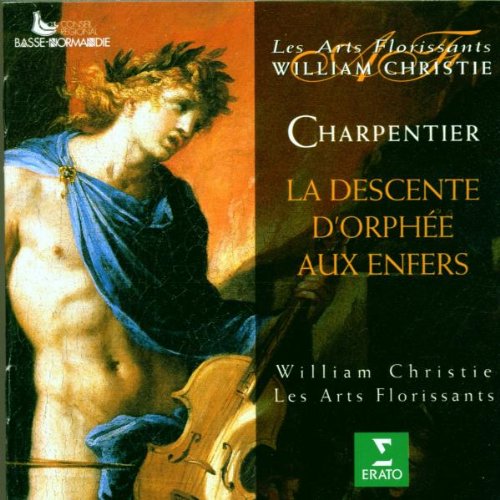
Charpentier: La Descente D'Orphée Aux Enfers ** Winner
Paul O'Dette & Stephen Stubbs, conductors; Aaron Sheehan; Renate Wolter-Seevers, producer (Boston Early Music Festival Chamber Ensemble; Boston Early Music Festival Vocal Ensemble)
Label: CPO
Milhaud: L'Orestie D'Eschyle
Kenneth Kiesler, conductor; Dan Kempson, Jennifer Lane, Tamara Mumford & Brenda Rae; Tim Handley, producer (University Of Michigan Percussion Ensemble & University Of Michigan Symphony Orchestra; University Of Michigan Chamber Choir, University Of Michigan Orpheus Singers, University Of Michigan University Choir & UMS Choral Union)
Label: Naxos
Rameau: Hippolyte Et Aricie
William Christie, conductor; Sarah Connolly, Stéphane Degout, Christiane Karg, Ed Lyon & Katherine Watson; Sébastien Chonion, producer (Orchestra Of The Age Of Enlightenment; The Glyndebourne Chorus)
Label: Opus Arte Reviewed here.
Schönberg: Moses Und Aron
Sylvain Cambreling, conductor; Andreas Conrad & Franz Grundheber; Reinhard Oechsler, producer (SWR Sinfonieorchester Baden-Baden Und Freiburg; EuropaChorAkademie)
Label: Hänssler Classic
Strauss: Elektra
Christian Thielemann, conductor; Evelyn Herlitzius, Waltraud Meier, René Pape & Anne Schwanewilms; Magdalena Herbst, producer (Staatskapelle Dresden; Sächsischer Staatsopernchor Dresden)
Label: Deutsche Grammophon
Best Choral Performance
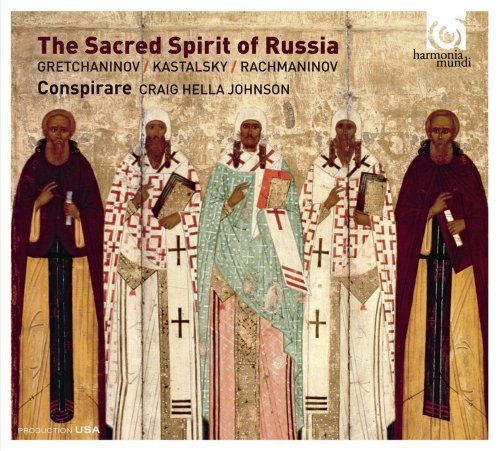
The Sacred Spirit Of Russia ** Winner
Craig Hella Johnson, conductor (Conspirare)
Label: Harmonia Mundi
Bach: Matthäus-Passion
René Jacobs, conductor (Werner Güra & Johannes Weisser; Akademie Für Alte Musik Berlin; Rias Kammerchor & Staats-Und Domchor Berlin)
Label: Harmonia Mundi
Dyrud: Out Of Darkness
Vivianne Sydnes, conductor (Erlend Aagaard Nilsen & Geir Morten Øien; Sarah Head & Lars Sitter; Nidaros Cathedral Choir)
Label: 2L (Lindberg Lyd)
Holst: First Choral Symphony; The Mystic Trumpeter
Andrew Davis, conductor; Stephen Jackson, chorus master (Susan Gritton; BBC Symphony Orchestra; BBC Symphony Chorus)
Label: Chandos Records
Mozart: Requiem
John Butt, conductor (Matthew Brook, Rowan Hellier, Thomas Hobbs & Joanne Lunn; Dunedin Consort)
Label: Linn Records
Best Chamber Music/Small Ensemble Performance
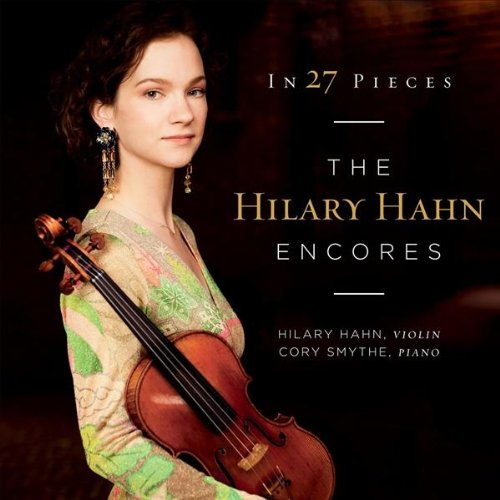
In 27 Pieces - The Hilary Hahn Encores ** Winner
Hilary Hahn & Cory Smythe
Label: Deutsche Grammophon
Dreams & Prayers
David Krakauer & A Far Cry
Label: Crier Records
Martinu: Cello Sonatas Nos. 1-3
Steven Isserlis & Olli Mustonen
Label: BIS
Partch: Castor & Pollux
Partch
Track from: Partch: Plectra & Percussion Dances
Label: Bridge Records, Inc.
Sing Thee Nowell
New York Polyphony
Label: BIS
Best Classical Instrumental Solo
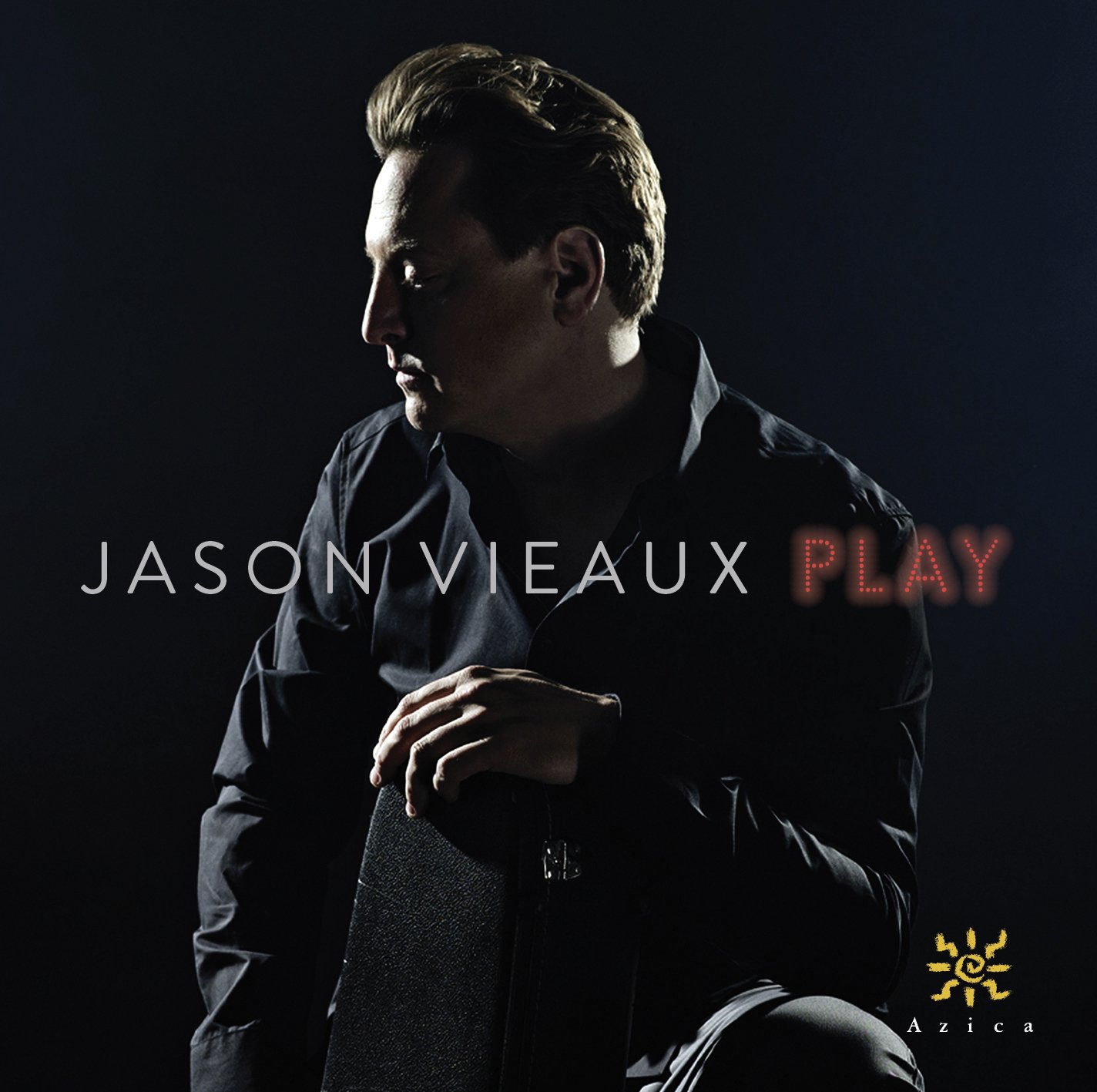
Play ** Winner
Jason Vieaux
Label: Azica Records
All The Things You Are
Leon Fleisher
Label: Bridge Records, Inc.
The Carnegie Recital
Daniil Trifonov
Label: Deutsche Grammophon
Dutilleux: Tout Un Monde Lointain
Xavier Phillips; Ludovic Morlot, conductor (Seattle Symphony)
Track from: Dutilleux: Symphony No. 1; Tout Un Monde Lointain; The Shadows Of Time
Label: Seattle Symphony Media
Toccatas
Jory Vinikour
Label: Sono Luminus
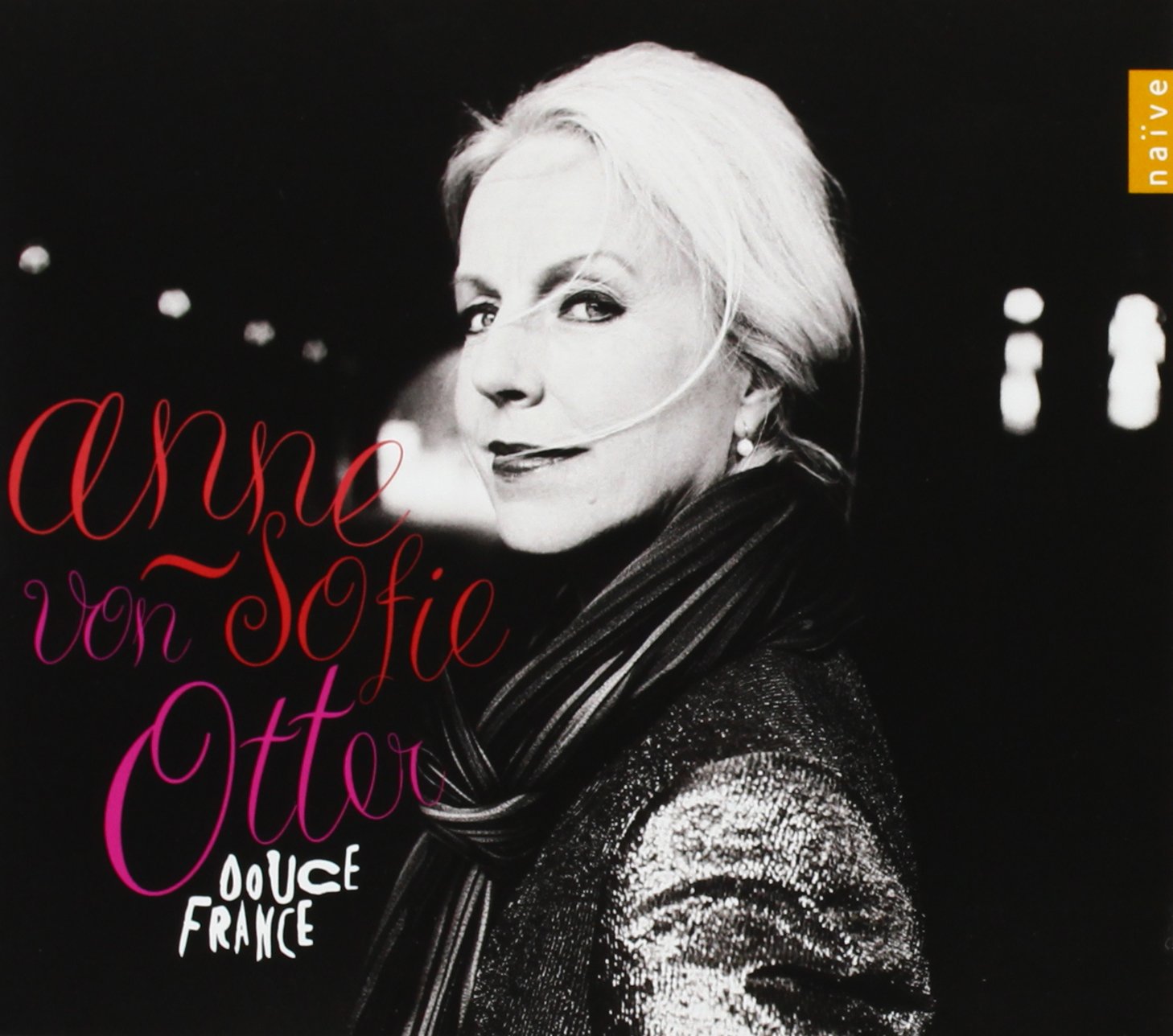
Douce France ** Winner
Anne Sofie Von Otter; Bengt Forsberg, accompanist (Carl Bagge, Margareta Bengston, Mats Bergström, Per Ekdahl, Bengan Janson, Olle Linder & Antoine Tamestit)
Label: Naïve
Porpora: Arias
Philippe Jaroussky; Andrea Marcon, conductor (Cecilia Bartoli; Venice Baroque Orchestra)
Label: Erato
Schubert: Die Schöne Müllerin
Florian Boesch; Malcolm Martineau, accompanist
Label: Onyx
Stella Di Napoli
Joyce DiDonato; Riccardo Minasi, conductor (Chœur De L'Opéra National De Lyon; Orchestre De L'Opéra National De Lyon)
Label: Erato/Warner Classics
Virtuoso Rossini Arias
Lawrence Brownlee; Constantine Orbelian, conductor (Kaunas City Symphony Orchestra)
Label: Delos
Contemporary Classical Composition
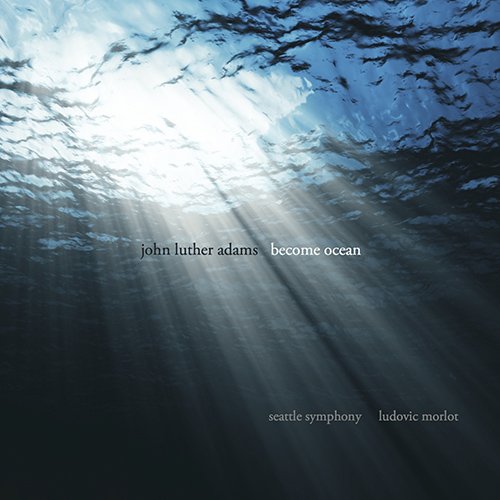
"Adams, John Luther: Become Ocean," John Luther Adams (Ludovic Morlot & Seattle Symphony) ** Winner
"Clyne, Anna: Prince Of Clouds," Anna Clyne (Jaime Laredo, Jennifer Koh, Vinay Parameswaran & Curtis 20/21 Ensemble)
"Crumb, George: Voices From The Heartland," George Crumb (Ann Crumb, Patrick Mason, James Freeman & Orchestra 2001)
"Paulus, Stephen: Concerto For Two Trumpets & Band," Stephen Paulus (Eric Berlin, Richard Kelley, James Patrick Miller & UMASS Wind Ensemble)
"Sierra, Roberto: Sinfonía No. 4," Roberto Sierra (Giancarlo Guerrero & Nashville Symphony)
Best Classical Compendium
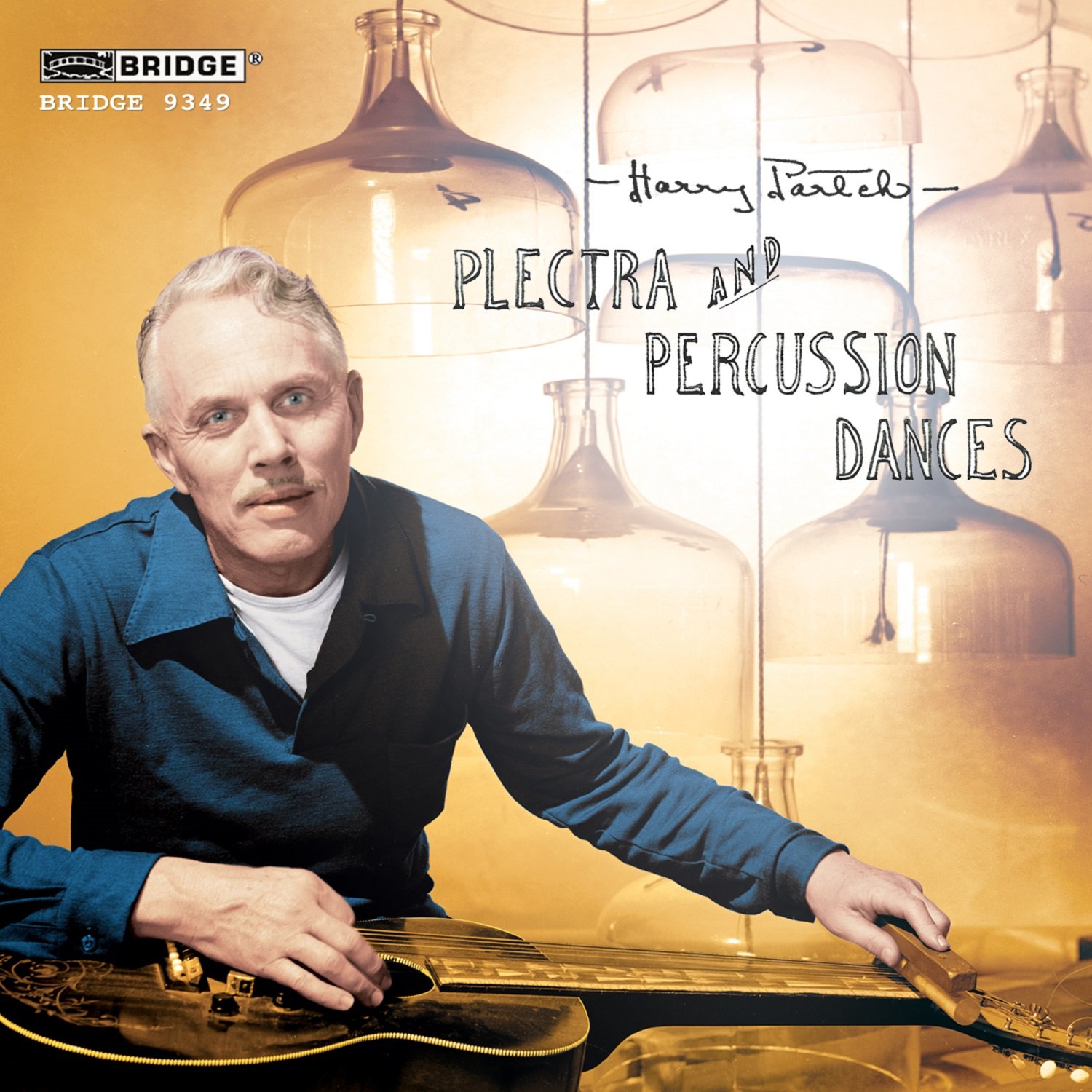
Partch: Plectra & Percussion Dances ** Winner
Partch; John Schneider, producer
Label: Bridge Records, Inc.
Britten To America
Jeffrey Skidmore, conductor; Colin Matthews, producer
Label: NMC Recordings
Mieczys_aw Weinberg
Giedr_ Dirvanauskait_, Daniil Grishin, Gidon Kremer & Daniil Trifonov; Manfred Eicher, producer
Label: ECM New Series
Mike Marshall & The Turtle Island Quartet
Mike Marshall & Turtle Island Quartet; Mike Marshall, producer
Label: Adventure Music
The Solent - Fifty Years Of Music By Ralph Vaughan Williams
Paul Daniel, conductor; Andrew Walton, producer
Label: Albion Records
Adams, John: City Noir ** Winner
David Robertson, conductor (St. Louis Symphony)
Label: Nonesuch
Dutilleux: Symphony No. 1; Tout Un Monde Lointain; The Shadows Of Time
Ludovic Morlot, conductor (Seattle Symphony)
Label: Seattle Symphony Media
Dvorák: Symphony No. 8; Janácek: Symphonic Suite From Jen_fa
Manfred Honeck, conductor (Pittsburgh Symphony Orchestra)
Label: Reference Recordings
Schumann: Symphonies 1-4
Simon Rattle, conductor (Berliner Philharmoniker)
Label: Berliner Philharmoniker Recordings
Sibelius: Symphonies Nos. 6 & 7; Tapiola
Robert Spano, conductor (Atlanta Symphony Orchestra)
Label: ASO Media
Best Opera Recording

Charpentier: La Descente D'Orphée Aux Enfers ** Winner
Paul O'Dette & Stephen Stubbs, conductors; Aaron Sheehan; Renate Wolter-Seevers, producer (Boston Early Music Festival Chamber Ensemble; Boston Early Music Festival Vocal Ensemble)
Label: CPO
Milhaud: L'Orestie D'Eschyle
Kenneth Kiesler, conductor; Dan Kempson, Jennifer Lane, Tamara Mumford & Brenda Rae; Tim Handley, producer (University Of Michigan Percussion Ensemble & University Of Michigan Symphony Orchestra; University Of Michigan Chamber Choir, University Of Michigan Orpheus Singers, University Of Michigan University Choir & UMS Choral Union)
Label: Naxos
Rameau: Hippolyte Et Aricie
William Christie, conductor; Sarah Connolly, Stéphane Degout, Christiane Karg, Ed Lyon & Katherine Watson; Sébastien Chonion, producer (Orchestra Of The Age Of Enlightenment; The Glyndebourne Chorus)
Label: Opus Arte Reviewed here.
Schönberg: Moses Und Aron
Sylvain Cambreling, conductor; Andreas Conrad & Franz Grundheber; Reinhard Oechsler, producer (SWR Sinfonieorchester Baden-Baden Und Freiburg; EuropaChorAkademie)
Label: Hänssler Classic
Strauss: Elektra
Christian Thielemann, conductor; Evelyn Herlitzius, Waltraud Meier, René Pape & Anne Schwanewilms; Magdalena Herbst, producer (Staatskapelle Dresden; Sächsischer Staatsopernchor Dresden)
Label: Deutsche Grammophon
Best Choral Performance

The Sacred Spirit Of Russia ** Winner
Craig Hella Johnson, conductor (Conspirare)
Label: Harmonia Mundi
Bach: Matthäus-Passion
René Jacobs, conductor (Werner Güra & Johannes Weisser; Akademie Für Alte Musik Berlin; Rias Kammerchor & Staats-Und Domchor Berlin)
Label: Harmonia Mundi
Dyrud: Out Of Darkness
Vivianne Sydnes, conductor (Erlend Aagaard Nilsen & Geir Morten Øien; Sarah Head & Lars Sitter; Nidaros Cathedral Choir)
Label: 2L (Lindberg Lyd)
Holst: First Choral Symphony; The Mystic Trumpeter
Andrew Davis, conductor; Stephen Jackson, chorus master (Susan Gritton; BBC Symphony Orchestra; BBC Symphony Chorus)
Label: Chandos Records
Mozart: Requiem
John Butt, conductor (Matthew Brook, Rowan Hellier, Thomas Hobbs & Joanne Lunn; Dunedin Consort)
Label: Linn Records
Best Chamber Music/Small Ensemble Performance

In 27 Pieces - The Hilary Hahn Encores ** Winner
Hilary Hahn & Cory Smythe
Label: Deutsche Grammophon
Dreams & Prayers
David Krakauer & A Far Cry
Label: Crier Records
Martinu: Cello Sonatas Nos. 1-3
Steven Isserlis & Olli Mustonen
Label: BIS
Partch: Castor & Pollux
Partch
Track from: Partch: Plectra & Percussion Dances
Label: Bridge Records, Inc.
Sing Thee Nowell
New York Polyphony
Label: BIS
Best Classical Instrumental Solo

Play ** Winner
Jason Vieaux
Label: Azica Records
All The Things You Are
Leon Fleisher
Label: Bridge Records, Inc.
The Carnegie Recital
Daniil Trifonov
Label: Deutsche Grammophon
Dutilleux: Tout Un Monde Lointain
Xavier Phillips; Ludovic Morlot, conductor (Seattle Symphony)
Track from: Dutilleux: Symphony No. 1; Tout Un Monde Lointain; The Shadows Of Time
Label: Seattle Symphony Media
Toccatas
Jory Vinikour
Label: Sono Luminus

Douce France ** Winner
Anne Sofie Von Otter; Bengt Forsberg, accompanist (Carl Bagge, Margareta Bengston, Mats Bergström, Per Ekdahl, Bengan Janson, Olle Linder & Antoine Tamestit)
Label: Naïve
Porpora: Arias
Philippe Jaroussky; Andrea Marcon, conductor (Cecilia Bartoli; Venice Baroque Orchestra)
Label: Erato
Schubert: Die Schöne Müllerin
Florian Boesch; Malcolm Martineau, accompanist
Label: Onyx
Stella Di Napoli
Joyce DiDonato; Riccardo Minasi, conductor (Chœur De L'Opéra National De Lyon; Orchestre De L'Opéra National De Lyon)
Label: Erato/Warner Classics
Virtuoso Rossini Arias
Lawrence Brownlee; Constantine Orbelian, conductor (Kaunas City Symphony Orchestra)
Label: Delos
Contemporary Classical Composition

"Adams, John Luther: Become Ocean," John Luther Adams (Ludovic Morlot & Seattle Symphony) ** Winner
"Clyne, Anna: Prince Of Clouds," Anna Clyne (Jaime Laredo, Jennifer Koh, Vinay Parameswaran & Curtis 20/21 Ensemble)
"Crumb, George: Voices From The Heartland," George Crumb (Ann Crumb, Patrick Mason, James Freeman & Orchestra 2001)
"Paulus, Stephen: Concerto For Two Trumpets & Band," Stephen Paulus (Eric Berlin, Richard Kelley, James Patrick Miller & UMASS Wind Ensemble)
"Sierra, Roberto: Sinfonía No. 4," Roberto Sierra (Giancarlo Guerrero & Nashville Symphony)
Best Classical Compendium

Partch: Plectra & Percussion Dances ** Winner
Partch; John Schneider, producer
Label: Bridge Records, Inc.
Britten To America
Jeffrey Skidmore, conductor; Colin Matthews, producer
Label: NMC Recordings
Mieczys_aw Weinberg
Giedr_ Dirvanauskait_, Daniil Grishin, Gidon Kremer & Daniil Trifonov; Manfred Eicher, producer
Label: ECM New Series
Mike Marshall & The Turtle Island Quartet
Mike Marshall & Turtle Island Quartet; Mike Marshall, producer
Label: Adventure Music
The Solent - Fifty Years Of Music By Ralph Vaughan Williams
Paul Daniel, conductor; Andrew Walton, producer
Label: Albion Records
Tuesday, February 10, 2015
Smoking
There is to this day constant speculation whether or not Maria Callas's vocal decline was due to her weight loss. She liked to point out that her greatest recordings were made when she was skinny, her word. Why is it that no one proposes that her vocal decline and premature death were due to lung damage brought on by SMOKING?
Just so you are not too shocked, here is Renata Tibaldi, Callas's great contemporary and rival, smoking. I can't tell if Mario Del Monaco is also smoking, but there is something that might be a wisp of smoke in the upper right. In the old days everyone smoked.
And why is it never proposed that Enrico Caruso died because of smoking?
This is Corelli.
And this is Fischer-Dieskau.
Now everyone takes selfies.
Sunday, February 08, 2015
Lucia Streamed from Munich
This is Diana Damrau with her pistol in Lucia di Lammermoor streamed from the Bayerische Staatsoper. There was a film with a young woman explaining the production. Does the plot of Lucia, where a young woman kills her newly wedded husband because he isn't the one she wants, still work if it is a modern woman? I have to conclude that it does, even with the trusty hand gun. Toward the end of the mad scene a young girl comes out and holds the gun for a while. This isn't explained. I was fine with it until then.
Diana is wonderful in this, but my head was completely turned by the tenor Pavol Breslik. We have this nice selfie of him:
Saturday, February 07, 2015
Serious Opera Blogs don't Include Stuff Like This
I was messing with my iPhone 5c and I keyed in the letters "theo," which could be theory or something like that. The list of words above the key pad displayed the word "theorbo." I bet yours doesn't do that.
I posted this on Facebook and was immediately presented with a film from Big Bang Theory where Sheldon plays the theremin.
In this film Sheldon plays a bit of the theme from Star Trek. If you navigate to YouTube, the comments will tell you that in the first few episodes of Star Trek the theme was indeed on the theremin while later ones were actually sung. You have to be a serious Star Trek fan to notice this.
Sheldon is apparently quite the musician. This longer film shows him playing other instruments, too.
Maybe I should take my synthesizer out of the closet. I wonder what a theremin costs.
I posted this on Facebook and was immediately presented with a film from Big Bang Theory where Sheldon plays the theremin.
In this film Sheldon plays a bit of the theme from Star Trek. If you navigate to YouTube, the comments will tell you that in the first few episodes of Star Trek the theme was indeed on the theremin while later ones were actually sung. You have to be a serious Star Trek fan to notice this.
Sheldon is apparently quite the musician. This longer film shows him playing other instruments, too.
Maybe I should take my synthesizer out of the closet. I wonder what a theremin costs.
Friday, February 06, 2015
Sacramento philharmonic, opera get interim executive director
From the Sacramento Bee 2/5/15:
The Sacramento Region Performing Arts Alliance, which operates the Sacramento Philharmonic & Opera, has picked an interim executive director.
The organization chose Alice Sauro, 51, an orchestra manager with the Detroit Symphony, said Paul Hogle, executive vice president with the Detroit Symphony Orchestra.
Hogle heads a team of consultants helping the Sacramento alliance revamp the opera and philharmonic’s board and operations.
Both the opera and philharmonic struggled financially after the onset of the recession in 2008. The two groups merged in 2013 in an effort to stay afloat amid declining attendance, shaky finances and a changing arts patronage landscape.
The hiring announcement is the first from the SRPAA since it said last year that it would cancel most of its 2014-15 season. It’s also the first signal that the orchestra and opera are moving forward in the hopes of mounting a season in 2015-16.
Sauro was introduced to the alliance’s board of directors on Jan. 30 at a winter retreat.
She has a 29-year career as a musician and an orchestra manager with the Detroit Symphony, which operates on a $27.7 million budget. She is a conservatory-trained violinist whose 25-year performing career was cut short by injury.
Twelve years ago, Sauro was recruited by the Detroit Symphony to be its assistant orchestra personnel manager and later assumed the role of orchestra and operations manager, a job in which she organized tours and oversaw contracts and scheduling.
Hogle said Sauro will be paid on a contractor basis and that she was one of two candidates interviewed for the position.
Although Sauro has no experience leading an orchestra, she has 12 years of solid managerial experience in Detroit, said Hayden McKay, longtime cellist with the Detroit Symphony.
“She has a lot of administrative experience on the operational side although not so much on the fundraising or marketing side,” McKay said.
“But, anything that has to do with running the operation – she has that experience,” McKay said.
Sauro moved to the Bay Area last fall as a result of her husband’s job transfer.
“When I heard her name put forward and was called to get some impression of her from those involved, I thought she would be a good fit,” McKay said. “This would be her chance to be in a smaller organization, at least for a while, and she will get to cover more areas of orchestra management. It seems like a natural progression for her.”
Sauro becomes the first executive director of the SRPAA since the last executive director, Rob Tannenbaum left last April after only 10 months on the job.
The SRPAA is currently not looking for a permanent executive director. However, a search may begin as early as next fall, Hogle said.
“Right now, our strategy is to move forward collecting every experienced veteran on an interim basis who is interested in helping this company return to the stage,” Hogle said.
The SRPAA is expected to announce plans for a 2015-16 season later this spring, he said.
The Sacramento Region Performing Arts Alliance, which operates the Sacramento Philharmonic & Opera, has picked an interim executive director.
The organization chose Alice Sauro, 51, an orchestra manager with the Detroit Symphony, said Paul Hogle, executive vice president with the Detroit Symphony Orchestra.
Hogle heads a team of consultants helping the Sacramento alliance revamp the opera and philharmonic’s board and operations.
Both the opera and philharmonic struggled financially after the onset of the recession in 2008. The two groups merged in 2013 in an effort to stay afloat amid declining attendance, shaky finances and a changing arts patronage landscape.
The hiring announcement is the first from the SRPAA since it said last year that it would cancel most of its 2014-15 season. It’s also the first signal that the orchestra and opera are moving forward in the hopes of mounting a season in 2015-16.
Sauro was introduced to the alliance’s board of directors on Jan. 30 at a winter retreat.
She has a 29-year career as a musician and an orchestra manager with the Detroit Symphony, which operates on a $27.7 million budget. She is a conservatory-trained violinist whose 25-year performing career was cut short by injury.
Twelve years ago, Sauro was recruited by the Detroit Symphony to be its assistant orchestra personnel manager and later assumed the role of orchestra and operations manager, a job in which she organized tours and oversaw contracts and scheduling.
Hogle said Sauro will be paid on a contractor basis and that she was one of two candidates interviewed for the position.
Although Sauro has no experience leading an orchestra, she has 12 years of solid managerial experience in Detroit, said Hayden McKay, longtime cellist with the Detroit Symphony.
“She has a lot of administrative experience on the operational side although not so much on the fundraising or marketing side,” McKay said.
“But, anything that has to do with running the operation – she has that experience,” McKay said.
Sauro moved to the Bay Area last fall as a result of her husband’s job transfer.
“When I heard her name put forward and was called to get some impression of her from those involved, I thought she would be a good fit,” McKay said. “This would be her chance to be in a smaller organization, at least for a while, and she will get to cover more areas of orchestra management. It seems like a natural progression for her.”
Sauro becomes the first executive director of the SRPAA since the last executive director, Rob Tannenbaum left last April after only 10 months on the job.
The SRPAA is currently not looking for a permanent executive director. However, a search may begin as early as next fall, Hogle said.
“Right now, our strategy is to move forward collecting every experienced veteran on an interim basis who is interested in helping this company return to the stage,” Hogle said.
The SRPAA is expected to announce plans for a 2015-16 season later this spring, he said.
Call The Bee’s Edward Ortiz, (916) 321-1071. Follow him on Twitter @edwardortiz
Thursday, February 05, 2015
CD of 27
If you're interested in modern opera, there is now a CD of Ricky Ian Gordon's 27, the opera about Gertrude Stein I flew to St. Louis to hear last summer. It's an in performance recording. All my complaints were about incongruities between the opera and real life. In an opera what does that matter?
#ad
Tuesday, February 03, 2015
Andrea Chénier
I always have to be a bit nostalgic. My first Andrea Chénier was in 1965 at the San Francisco opera and starred Richard Tucker and Renata Tebaldi. I recall she entered from upstage to great applause. The stage director was Lotfi Mansouri who knew that the great star required an entrance.
I have watched the link on the comment of Andrea Chénier from the ROH. I didn't mind at all the absence of titles. They have all made an excellent case for this opera. This is not a story like Tosca and Butterfly. They are real people who lived and died in a way much like this. They have honored the story with real costumes such as they might truly have worn. I even liked the two Madame Defarge characters knitting in the front row of the tribunal scene.
And for this most real opera they have hired two wonderful singers, Jonas Kaufmann and Eva-Maria Westbroek, who just may be the two most sincere singers today. For only absolute sincerity will carry the last scene, one of the greatest in all opera. Lučić was remarkable, too, showing a very wide range of emotions.
For love, for poetry, for art. Bravi tutti.
Andrea Chénier, a poet tenor Jonas Kaufmann
Carlo Gérard, a servant baritone Željko Lučić
Maddalena de Coigny soprano Eva-Maria Westbroek
Bersi, her maid mezzo-soprano Denyce Graves
La comtesse di Coigny mezzo-soprano Rosalind Plowright
Pietro Fléville, a novelist bass Peter Coleman-Wright
Mathieu, a sans-culotte buffo or baritone Adrian Clarke
The Abbé, a poet tenor Peter Hoare
The Incredible, a spy tenor Carlo Bosi
Roucher, a friend of Chénier bass or baritone Roland Wood
Schmidt, a jailer at St. Lazare bass or baritone Jeremy White
Madelon, an old woman mezzo-soprano Elena Zilio
Fouquier-Tinville, the Public Prosecutor bass or baritone Eddie Wade
Dumas, Master of the Household bass Yuriy Yurchuk
#ad
I have watched the link on the comment of Andrea Chénier from the ROH. I didn't mind at all the absence of titles. They have all made an excellent case for this opera. This is not a story like Tosca and Butterfly. They are real people who lived and died in a way much like this. They have honored the story with real costumes such as they might truly have worn. I even liked the two Madame Defarge characters knitting in the front row of the tribunal scene.
And for this most real opera they have hired two wonderful singers, Jonas Kaufmann and Eva-Maria Westbroek, who just may be the two most sincere singers today. For only absolute sincerity will carry the last scene, one of the greatest in all opera. Lučić was remarkable, too, showing a very wide range of emotions.
For love, for poetry, for art. Bravi tutti.
Andrea Chénier, a poet tenor Jonas Kaufmann
Carlo Gérard, a servant baritone Željko Lučić
Maddalena de Coigny soprano Eva-Maria Westbroek
Bersi, her maid mezzo-soprano Denyce Graves
La comtesse di Coigny mezzo-soprano Rosalind Plowright
Pietro Fléville, a novelist bass Peter Coleman-Wright
Mathieu, a sans-culotte buffo or baritone Adrian Clarke
The Abbé, a poet tenor Peter Hoare
The Incredible, a spy tenor Carlo Bosi
Roucher, a friend of Chénier bass or baritone Roland Wood
Schmidt, a jailer at St. Lazare bass or baritone Jeremy White
Madelon, an old woman mezzo-soprano Elena Zilio
Fouquier-Tinville, the Public Prosecutor bass or baritone Eddie Wade
Dumas, Master of the Household bass Yuriy Yurchuk
#ad
Sunday, February 01, 2015
Blogging
I wrote a long post about Russian politics. I find that this is a subject I would prefer to stay away from. Since I often give advice, I will leave that part in--Anna Netrebko should consider staying away from politics as well. When it comes up, smile and change the subject to something about opera. Study how deftly Cecilia Bartoli does this. She is the master of not wandering off the subject. For an artist the subject must always be art.
Subscribe to:
Posts (Atom)























